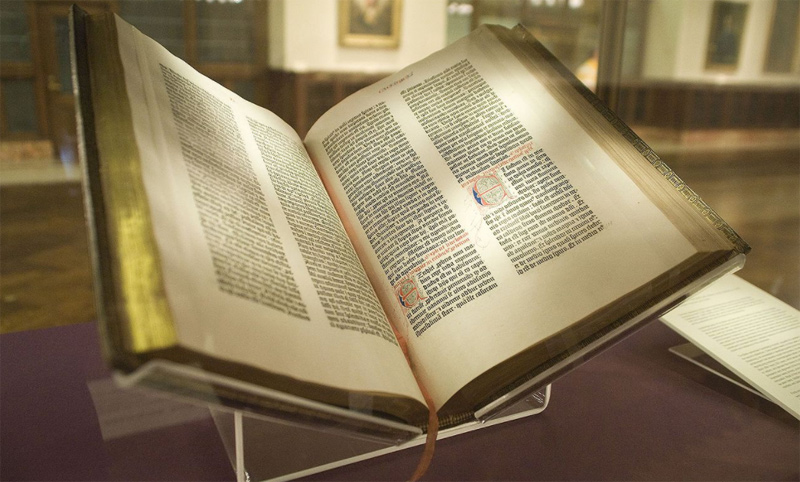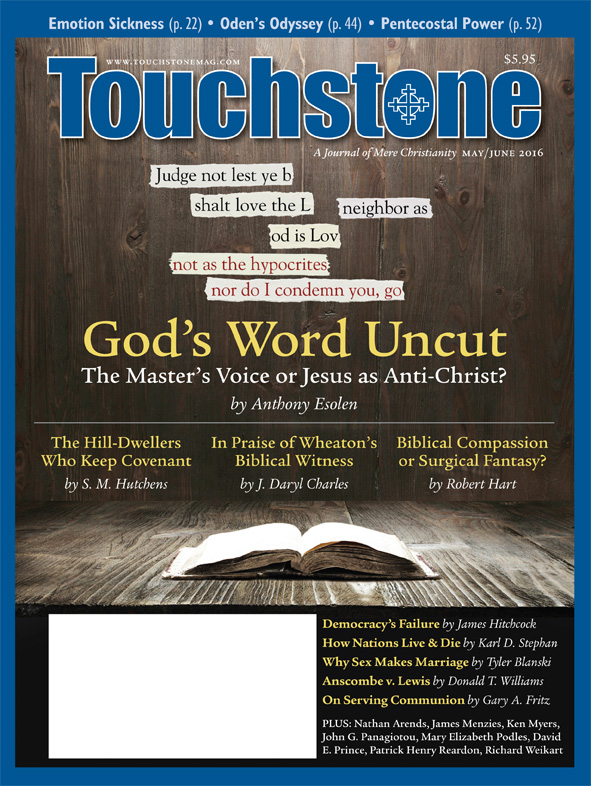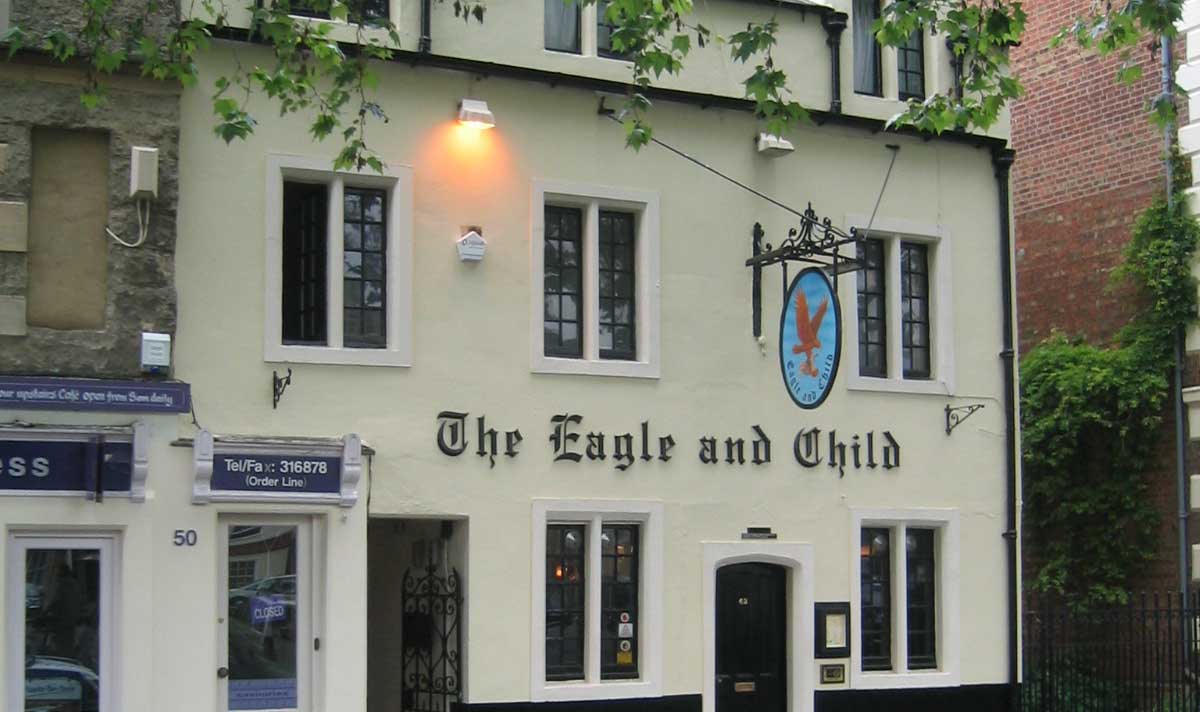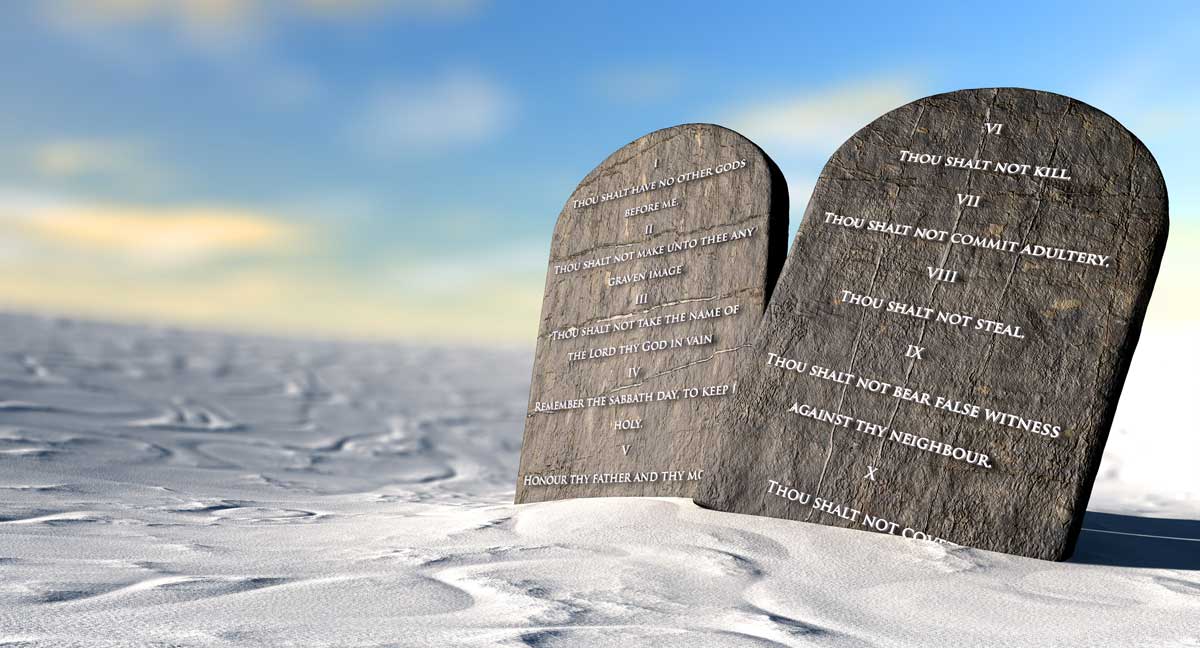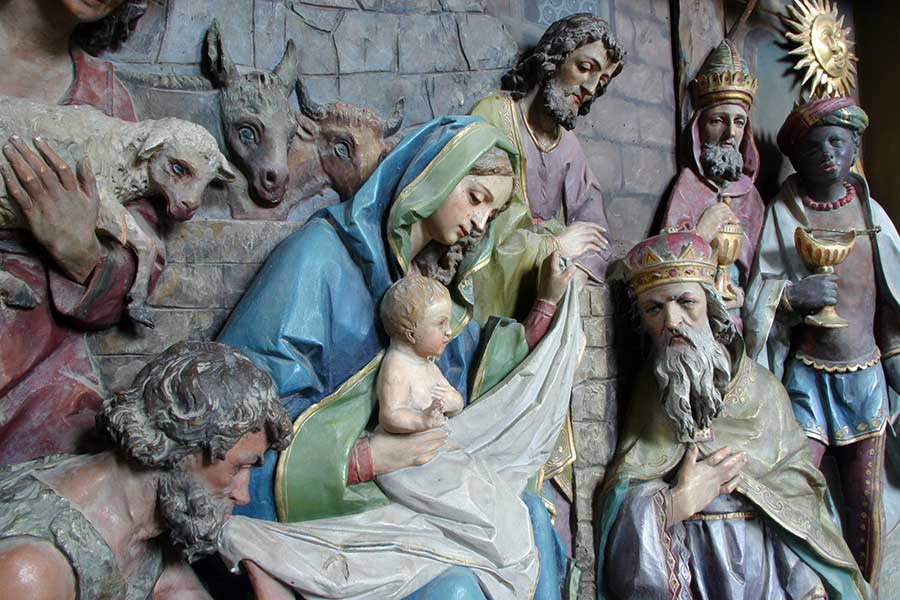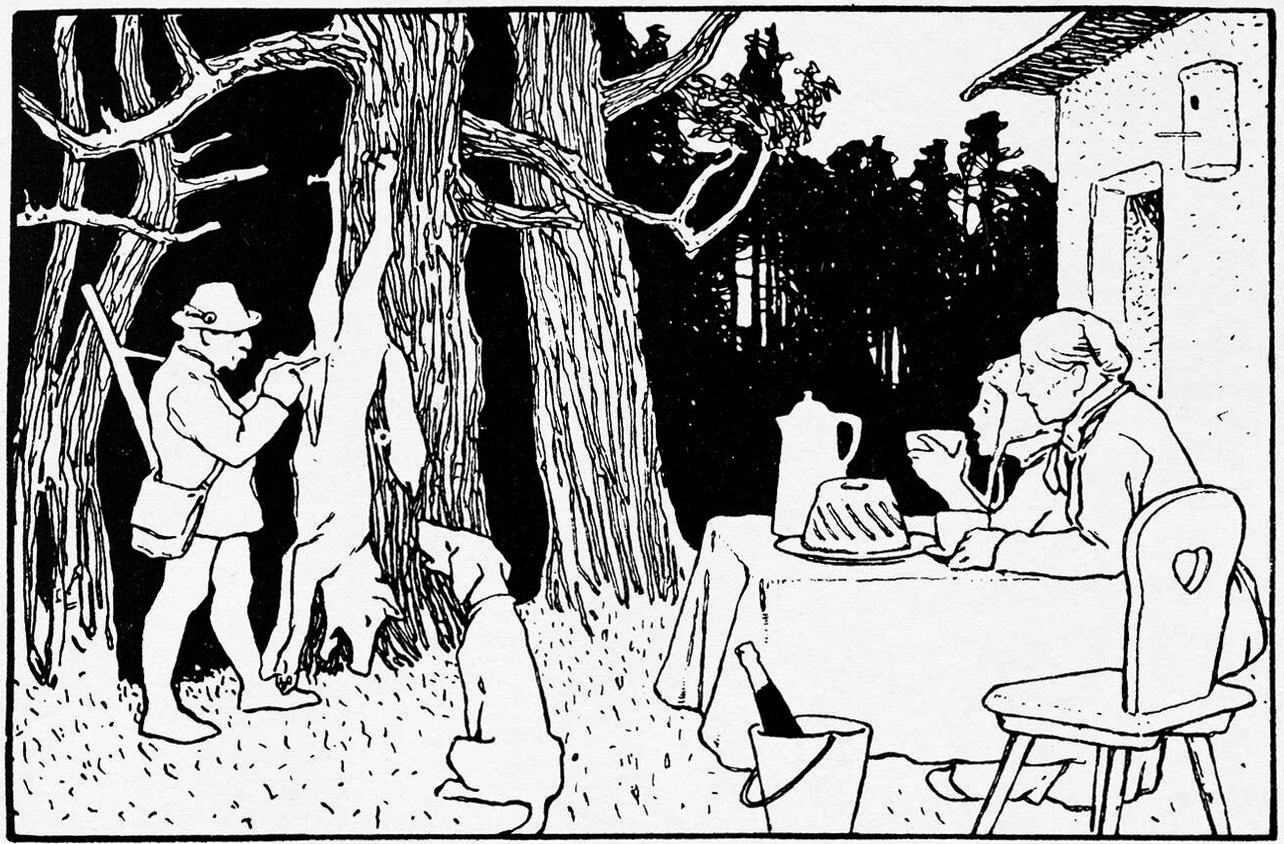View
Printing Error
Donald T. Williams on Anscombe's Final Word on Lewis & Naturalism
Elizabeth Anscombe's major philosophical work has been overshadowed for many by one event: her debate with C. S. Lewis at the Oxford Socratic Club in 1947 over his "argument from reason" for the self-refuting character of naturalism, as made in the first edition of his book Miracles. At the least, it was a fairly significant event. Lewis had argued that if naturalism were true, it would remove all reason for believing that naturalism is true, because it would reduce all thoughts to chemical reactions in our brains, produced not by the laws of logic but by the laws of chemistry and physics. He stated his objection by saying that we discount beliefs that have irrational causes. Anscombe replied that irrational causes can produce true beliefs.
Well, certainly they can: you can be lucky rather than logical. But does this rejoinder really refute Lewis's point? That question has received varied answers. While the debate itself was thought by many of those in attendance to end in a draw, it led Lewis to revise the third chapter of Miracles and to soften its title from "The Self-Contradiction of the Naturalist" to "The Cardinal Difficulty with Naturalism." The discussion over whether Lewis's argument (original or revised) is valid continues; Victor Reppert, for instance, admirably summarizes it in his book C. S. Lewis's Dangerous Idea (InterVarsity Press, 2003).
Anscombe's Analogy
On November 12, 1985, Anscombe addressed the Oxford C. S. Lewis Society on her response to Lewis's revisions. A transcript of that talk was published last year in C. S. Lewis and His Circle (Oxford University Press, 2015). In it, Anscombe explains why she still had issues with Lewis's argument, but in doing so, I would argue, she actually reinforces Lewis's conclusion.
Anscombe correctly saw Lewis's argument as an elaboration of one made by J. B. S. Haldane, which Lewis quoted: "If my mental processes are determined wholly by the motions of atoms in my brain, I have no reason to suppose that my beliefs are true . . . and hence I have no reason for supposing my brain to be composed of atoms." To explain her objection to this argument, Anscombe offered "an analogous supposition": "It makes sense to say that linguistic marks—that is, marks that are part of a language as they occur in a printed book—are wholly determined by the machinery that printed the book." In this analogy, the marks in the books apparently correspond to Lewis's "thoughts," and the printing machinery to his "irrational causes" for those thoughts, which he thought would render the thoughts worthy of being discounted.
Anscombe concluded that "we wouldn't dream of saying" that the production of the marks by machines gave us any reason for supposing that any of the propositions in the book were either true or false. She summed up her argument with two observations: first, that the supposition that the words in the book are "wholly determined by . . . the printing machinery is true"; and second, that this truth has "no bearing whatever on whether anything said in the book is true" or on whether we have any grounds for thinking so. The knowledge that the marks were produced by a machine does not necessarily render them false; therefore, Lewis was wrong.
Anscombe's Error
I must confess that I had to read this page several times to be sure I had not missed something. For while Anscombe's analogy is interesting, the conclusion she draws from it is simply astonishing. If the analogy is apt at all, surely it points in exactly the opposite direction!
Why? Because a moment's reflection will show that the marks on the page of the book are not in fact "wholly determined" by the printing machinery. The misrepresentation of reality involved in claiming that they are is, well, egregious.
I have published nine books, so I know something about how this process works. The words in those books were not generated wholly by the printing press at all. (Neither were the words you are reading now.) They were generated by me (a certifiable non-machine), edited by an editor who was presumably also not a machine, and then agreed upon by me. The type (in the old days) was set by yet another human being, following directions given by the results of the writing and editing process.
It is only because there were (presumably) rational agents involved that the marks in the resulting books mean anything at all. If some of those marks can correctly be interpreted as truth claims (whether the claims themselves are true or not), it is only and precisely because somewhere behind the machines there was a personal agent volitionally asserting them by means of the machine that produced the physical book.
Think for a moment about what this more accurate description of printing means. If I thought a book in my college bookstore had been produced by printing presses without any input at all from rational and personal agents, I should have no reason to buy it or read it. It might by accident contain marks that formed propositions that in fact obtained in the real world—but that would give me no reason for believing them, as Anscombe rightly perceived.
And that was precisely Lewis's point: if the universe contains warranted true beliefs (to steal a phrase from a later thinker), then it cannot be reducible to an impersonal machine. Granted, to assert that the thoughts occurring in that universe are produced wholly by mechanical means does not prove that those thoughts are false, but Lewis never claimed that it did. He claimed that their being produced solely by mechanical means removed our warrant for believing them—including our warrant for believing the thought that they were produced mechanically. Therefore, naturalism must be false.
Ironic Confirmation
Lewis left himself open to the kind of quibbling Anscombe and others have offered by being uncharacteristically careless with his words. He originally laid down the rule that "No thought is valid if it can be fully explained as the result of irrational causes." But of course thoughts are not valid or invalid; arguments are. He was closer to getting it right when he said that "no account of the universe can be true unless that account leaves it possible for our thinking to be a real insight." In other words, we must not only be able to generate true statements, but we must also be able to see that they are true, as opposed to simply assenting to them, true or false, only because of our brain chemistry. Valid arguments would be one of the ways through which we achieve such seeing.
Now, it might be possible for true beliefs to occur in a naturalistic universe, just as some of the sentences in Anscombe's book generated wholly by the machinery of printing might be true. But could there be any warranted true beliefs? That position is much harder to defend, and Anscombe's analogy does nothing to defend it.
In fact, the general thrust of Lewis's argument was sound, and Anscombe's analogy, far from undermining his reasoning, ironically actually confirms it. It does not finally matter that irrational forces can produce thoughts that happen to be true. If we are limited to irrational (because physically determined) means of producing and evaluating those thoughts, we are never in a position rationally to assert them as truth claims. The naturalist, then, can believe in naturalism, but he cannot, logically and consistently with his naturalism, assert that naturalism is true. If the marks in our books (and in the books of our brains) were put there wholly by the machinery of printing, we have no reason to suppose that they are true, or even that they were produced by printing presses.
Haldane and Lewis were right. Naturalism cannot be asserted as true in a manner consistent with naturalism; theism, on the other hand, can be asserted as true without contradiction. This does not in itself prove that theism is true, i.e., that God exists. But it does show that theism logically could be true, while naturalism cannot be.
My conclusion, then, is that Lewis was right and that he ought to have stuck to his guns and continued speaking of the self-contradiction of the naturalist rather than merely of naturalism's cardinal difficulty. Anscombe had pointed out a problem with the wording of Lewis's original argument, but not with its substance, even though she apparently thought she had done the latter.
Re-reading Lewis's revisions to Miracles suggests to me that even he was not as clear about the difference as we can be now. The "argument from reason" is ironically confirmed by the very analogy that its most famous critic thought had refuted it. •
Donald T. Williams is Professor Emeritus of Toccoa Falls College. He stays permanently camped out on the borders between serious scholarship and pastoral ministry, between theology and literature, and between Narnia and Middle-Earth. He is the author of fourteen books, including Answers from Aslan: The Enduring Apologetics of C. S. Lewis (DeWard, 2023). He is a contributing editor of Touchstone.
subscription options
Order
Print/Online Subscription

Get six issues (one year) of Touchstone PLUS full online access including pdf downloads for only $39.95. That's only $3.34 per month!
Order
Online Only
Subscription

Get a one-year full-access subscription to the Touchstone online archives for only $19.95. That's only $1.66 per month!
bulk subscriptions
Order Touchstone subscriptions in bulk and save $10 per sub! Each subscription includes 6 issues of Touchstone plus full online access to touchstonemag.com—including archives, videos, and pdf downloads of recent issues for only $29.95 each! Great for churches or study groups.
Transactions will be processed on a secure server.
more on C. S. Lewis from the online archives
more from the online archives

24.6—Nov/Dec 2011
Liberty, Conscience & Autonomy
How the Culture War of the Roaring Twenties Set the Stage for Today’s Catholic & Evangelical Alliance by Barry Hankins
calling all readers
Please Donate
"There are magazines worth reading but few worth saving . . . Touchstone is just such a magazine."
—Alice von Hildebrand
"Here we do not concede one square millimeter of territory to falsehood, folly, contemporary sentimentality, or fashion. We speak the truth, and let God be our judge. . . . Touchstone is the one committedly Christian conservative journal."
—Anthony Esolen, Touchstone senior editor






